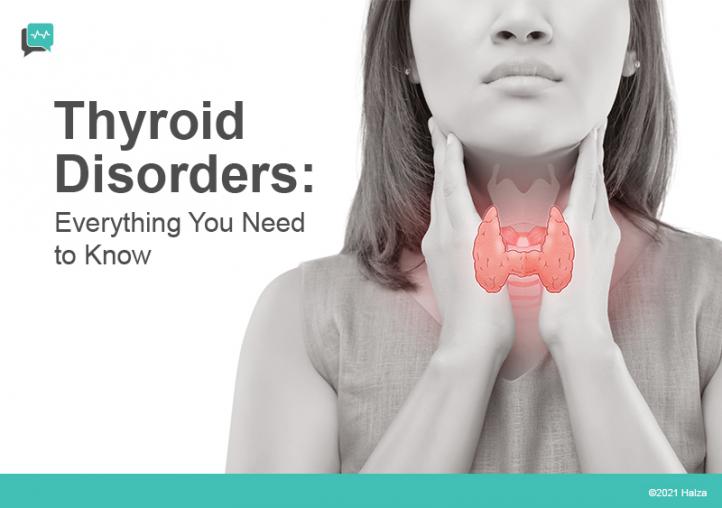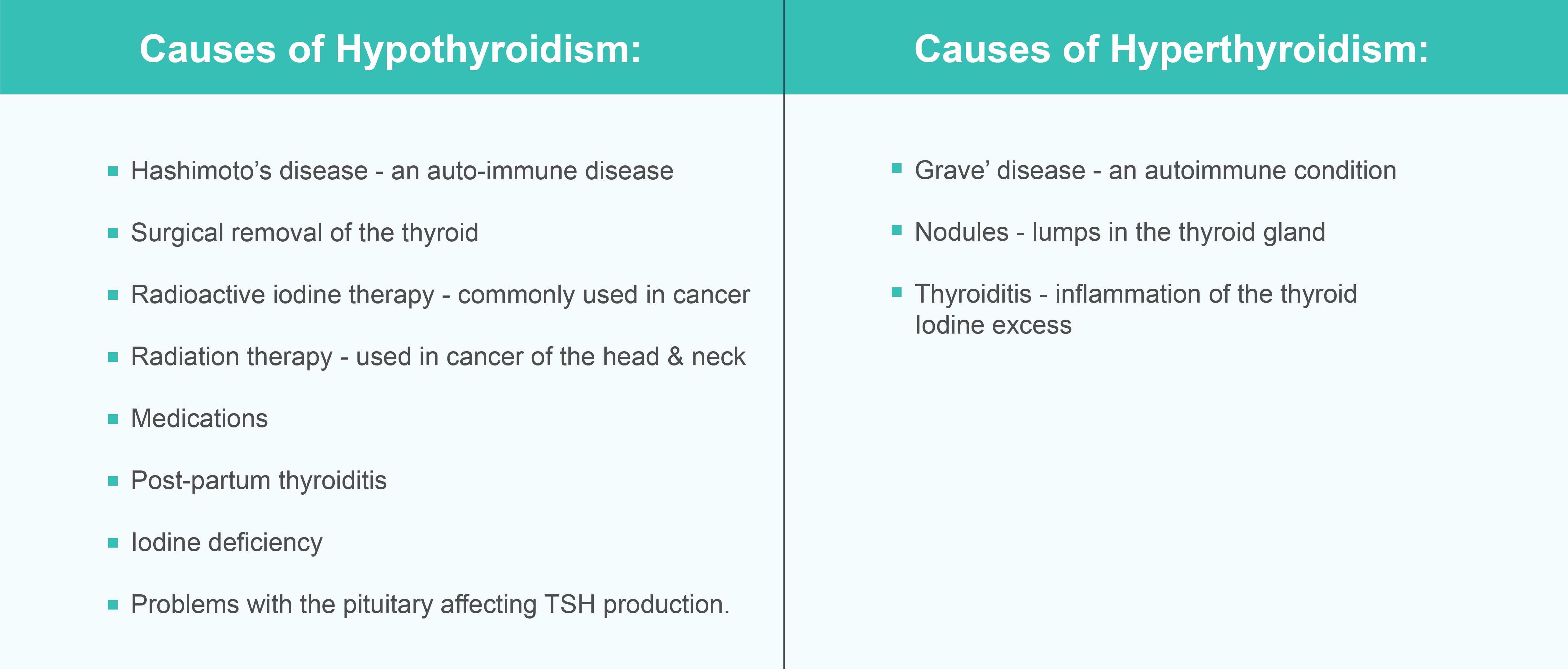Everything You Need To Know About Thyroid Disorders

Do you feel tired all the time? Has your weight has changed without any alternations in your typical eating habits? Have you noticed changes in your skin such as dryness or increased sweating? Or has your mood changed but you don’t know why?
 Let your doctor know during your next visit and they will probably add thyroid function tests to your routine blood tests. This will let them know if you have a thyroid condition.
Let your doctor know during your next visit and they will probably add thyroid function tests to your routine blood tests. This will let them know if you have a thyroid condition.
What Is the Thyroid Gland and What Does It Do?
The thyroid is a gland located in the front of the neck, just below the Adam’s apple.
Your thyroid secretes two hormones, called T4 and T3, into the bloodstream in response to direction from another hormone called thyroid-stimulating hormone (TSH) which is secreted by another gland sitting at the base of the brain called the pituitary gland.
The hormones T4 and T3 directly affect the speed of your metabolism, in other words, all of the biochemical processes taking place in the body.
If your thyroid is not releasing enough T4 or T3 hormones your bodily functions will feel slower than usual which is called hypothyroidism.
If your thyroid is releasing too much T4 or T3 your bodily functions will feel faster than usual which is known as hyperthyroidism.
After getting your thyroid functions tested, it is best to store the results in medical apps like Halza to get a better overview of your hormone levels. On Halza, you can graph your results over time and securely share the information with your doctor within seconds during appointments. Learn more about Halza here.
Some of the symptoms of both of these conditions are described below:

Since the thyroid gland controls our body’s metabolic processes, thyroid disorders can thereby affect the entire body.
Thyroid disorders can be present for years without causing any symptoms. When symptoms do occur, they can be vague and non-specific such as weight change, difficulty sleeping, anxiety, or a change in bowel habit.
Related reading:
• Want a good night’s sleep? Learn how here.
• Did you know that around 1 in 3 people will have at least one panic attack during their lifetime? Read more about panic disorders here.
What Are the Causes of Hypo and Hyperthyroidism?

Hashimoto’s disease and Graves’ disease, which are leading causes of hypo and hyperthyroidism respectively, are both auto-immune diseases.
In an autoimmune disease our immune system, which normally produces antibodies intended to attack invaders such as viruses and harmful bacteria, instead produces antibodies that attack the body’s own cells.
In Hashimoto’s disease, the immune system attacks and destroys thyroid cells, resulting in progressive underproduction of T4 and T3, leading to hypothyroidism.
In Graves’ disease, the immune system makes antibodies disguised as TSH.
These antibodies cause the thyroid to release too much T4 and T3, causing hyperthyroidism.
Currently, there is no information available with regards to the exact cause of either Hashimoto’s or Graves’ disease. Therefore, it is difficult to know how they can be prevented.
There are some risk factors associated with both conditions. The risk factors for Hashimoto’s disease include having a family history of the condition, as well as co-existing autoimmune diseases.
A person is more likely to be affected by Graves’ disease if they also have a family member affected.
The onset of disease may be triggered by physical or emotional stress, infection, or giving birth. Those with other autoimmune diseases are also more likely to be affected. A common lifestyle factor is smoking can increase the risk of Graves’ disease and may also worsen its associated eye problems (Graves’ ophthalmopathy).
Although we have discussed the thyroid gland and the symptoms and causes of common thyroid disorders, there is still a lot to know and learn about. If you are concerned that you or someone you care for may have a thyroid disorder, please take action and have it checked out.
Download Halza today!
Jill Sabin Garner received her Bachelor of Science in Nursing (summa cum laude) from New York University. A Registered Nurse and Certified Diabetes Educator, she serves on the boards of both the New York State Coordinating Body and the Metropolitan New York Group of the American Association of Diabetes Educators.
Sources:
All Thyroid Diseases (endocrineweb.com)
Thyroid Tests | NIDDK (nih.gov)
Underactive thyroid (hypothyroidism) – NHS (www.nhs.uk)
Overactive thyroid (hyperthyroidism) – NHS (www.nhs.uk)

